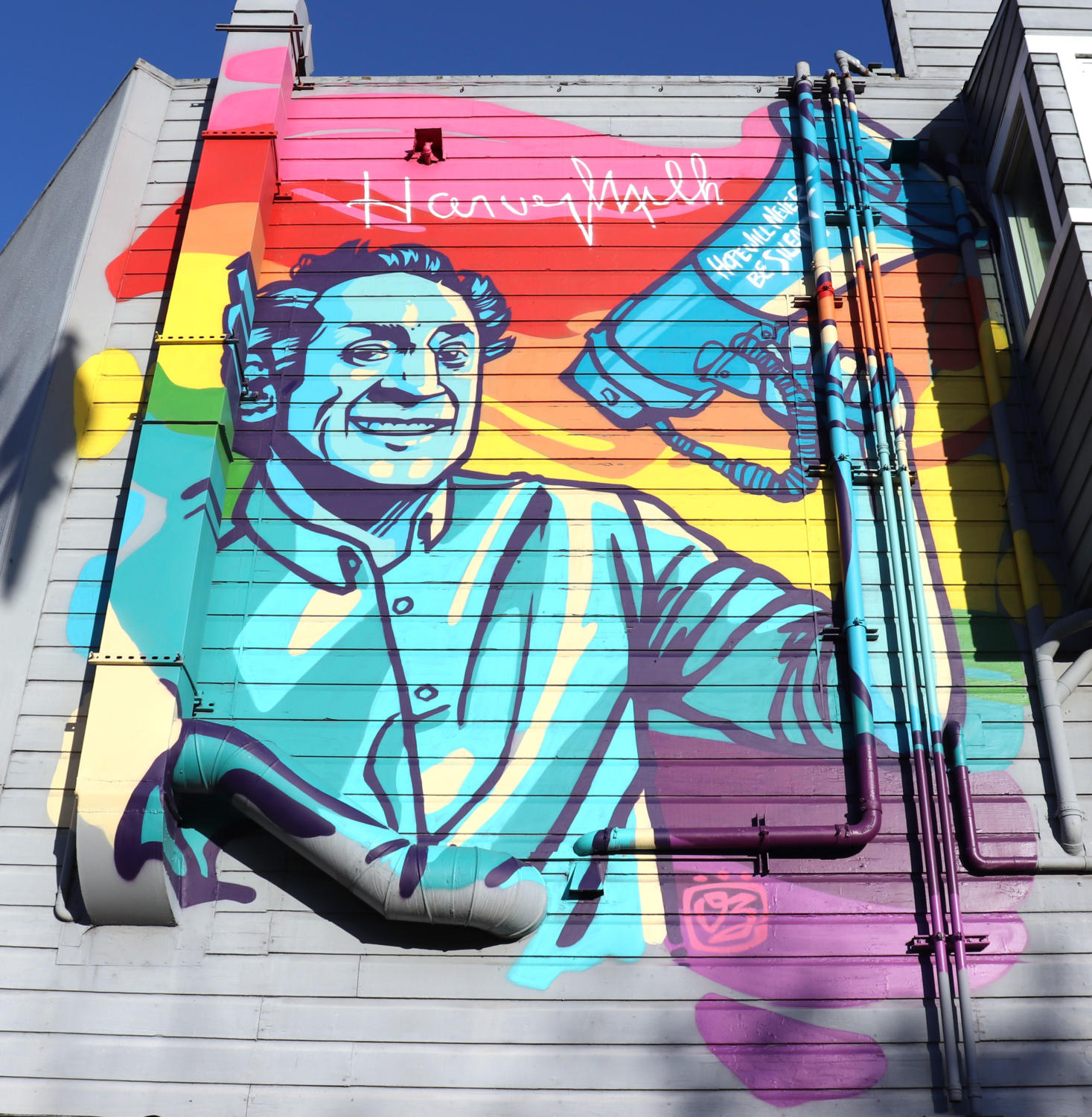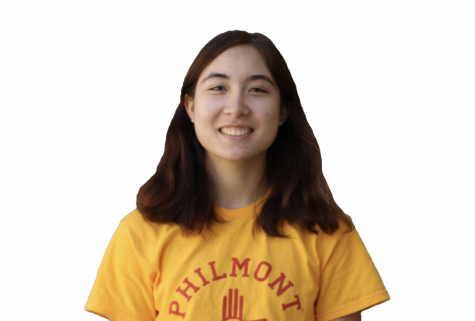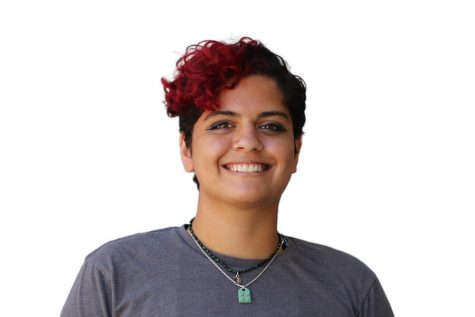Put yourself in the place of an LGBTQ+ high school student. Apart from two days during your life skills class, you have never been taught about your identity. You may believe you are broken, or that the way you feel is wrong.
Imagine trying to come out to your parents, who do not believe in being LGBTQ+ because they think it is a choice. Most LGBTQ+ high schoolers across America deal with this every day, leading to increasing suicide and depression rates.
Before the 1970s, the American Psychiatric Association’s (APA) Diagnostic and Statistical Manual of Mental Disorders (DSM) listed homosexuality as a mental illness or “sociopathic personality disturbance,” but removed it due to studies comparing heterosexual and homosexual men’s psychological state, according to the Department of Health and Human Services.
As reported by the National Alliance on Mental Illness (NAMI), LGBTQ+ people are at a higher risk for suicidal thoughts and actions. In the past 12 months, 48% of transgender people in the U.S. reported having suicidal thoughts, whereas the nationwide average is 4%.
Despite the mental health risks LGBTQ+ youth face, many high schools do not teach LGBTQ+ history.
“I haven’t learned anything about LGBTQ+ history at all. Teachers have mentioned people who I know were conceived to be LGBTQ+, but their identities were not mentioned in class,” said Parker Gates, a sophomore.
In Jackson J. Spielvogel’s “Western Civilization,” the textbook Carlmont students use in the Advanced Placement (AP) European History course, there is only one sentence mentioning LGBTQ+ people: “The Nazis also singled out homosexuals for persecution, and thousands lost their lives in concentration camps.”
Gregory Schoenstein, a history teacher at Carlmont who teaches AP European History, acknowledged that although there is only one sentence regarding them in the textbook, the LGBTQ+ community plays a big role in today’s society.
“LGBTQ+ topics certainly feature prominently in America’s ongoing culture wars … they have even featured as an area of interest in foreign policy,” Schoenstein said.
Schoenstein also noted that California state laws require the inclusion of LGBTQ+ topics in state history standards. However, according to U.S. News, the first California textbooks that include LGBTQ+ topics weren’t approved until 2017. Some of Carlmont’s older textbooks are set to be replaced with newer issues.
The American Civil War, the Women’s Suffrage Movement, and the Civil Rights Movement are all common topics in history classes surrounding minorities. Since LGBTQ+ history isn’t commonly taught in school, Schoenstein pointed out, LGBTQ+ youth could feel isolated.
“They would have to grow past and survive the self-loathing they will have been taught to believe, and/or the fear of being ‘outed’ and subject to scorn, derision, and outright attacks like Matthew Shepard [a gay student lynched in 1998] and so many others,” Schoenstein said.
Julia Wynne, a sophomore, noted that the primary source of her knowledge of the LGBTQ+ community was not school, but rather the people around her.
“I have learned quite a bit just from the internet, my friends, and the people at the San Mateo Pride Center,” Wynne said, adding that most students only learn about LGBTQ+ identities through Teen Talk, a sexual education program that is featured in freshman life skills classes.
Kathy Amendola is a tour guide for “Cruisin’ With the Castro Walking Tours,” which brings groups to historical places around the Castro District in San Francisco to learn about the struggle and pride of the LGBTQ+ community. She believes that history textbooks and social media have a heteronormative ideal, which is an underlying lesson that heterosexuality is the only identity that is normal and accepted. She observed that heteronormative ideals can have negative effects on the mental well-being of LGBTQ+ teenagers.
“Trying to mold kids into the heterosexual world has devastating results and leads to a high number of suicides, drug abuse, and homelessness,” Amendola said.
As Amendola pointed out, some LGBTQ+ people may become victims of dangerous actions as a result of heteronormativity. The Pulse shooting, where 49 people lost their lives at an Orlando nightclub for LGBTQ+ people, is one such example. The death count included the shooter, who was raised in a heteronormative family.
Emma Moore is a librarian for the San Carlos Charter Learning Center who recognized the effects of heteronormativity, and also noted that LGBTQ+ people may feel excluded at school since their history isn’t being taught.
“Any person whose perspective is not represented in their learning could feel as though their education naturally devalues who they are,” Moore said.
Schools may not feature LGBTQ+ figures, but one place where they are more prominent is the media. In recent decades, media representation of the LGBTQ+ community has increased and become more positive. According to the Newseum, one notable shift in the perception of the LGBTQ+ community was the premiere of NBC’s “Will & Grace” in 1998, which featured a gay character on mainstream television.
“Will & Grace” was soon followed by “Queer Eye for the Straight Guy” in 2003 (which had a 2017 reboot with the “Fab Five”), “Brokeback Mountain” in 2005, and ABC’s “Modern Family” in 2009. Large companies began producing television shows with LGBTQ+ characters, such as Netflix’s “Orange Is the New Black” and “One Day at a Time” in the 2010s.
Moore reflected on how LGBTQ+ media shaped her adolescence.
“Some of my favorite films throughout my adolescence … are representative of the LGBTQ+ community,” Moore said. “One of my favorite movies growing up was ‘The Adventures of Priscilla, Queen of the Desert’ [a movie about drag queens].”
Perhaps the largest change in LGBTQ+ representation in media was Ellen Degeneres’ character Ellen Morgan’s coming out episode in “Ellen,” which led to a decline in her success. Many celebrities do not come out in fear of hate and losing work opportunities, but in recent years, more people have begun coming out on social media. A prominent coming out was that of Lil Nas X, or Montero Lamar Hill, writer of the song “Old Town Road.” Hill came out publicly at the end of June 2019 via a set of tweets.
some of y’all already know, some of y’all don’t care, some of y’all not gone fwm no more. but before this month ends i want y’all to listen closely to c7osure. ??? pic.twitter.com/O9krBLllqQ
— nope (@LilNasX) June 30, 2019
deadass thought i made it obvious pic.twitter.com/HFCbVqBkLM
— nope (@LilNasX) June 30, 2019
“C7osure (You Like)” is a song that features lyrics about staying true to oneself and embracing new experiences, both of which are topics that pertain to the LGBTQ+ community.
Because most students learn about LGBTQ+ topics outside of school, some may feel as though school isn’t a place for them, Gates pointed out. However, he also noted that there is support on campus.
“Generally, I’d say the most helpful so far [have] been teachers that are really open and communicate, and don’t [tolerate hate],” Gates said.
Gates also said that students can help spread awareness of the LGBTQ+ community by getting involved in Carlmont’s Gender Sexuality Alliance (GSA) and the San Mateo Pride Center.
Vi Hua is the president of Carlmont’s GSA. Despite the progress that has been made to recognize LGBTQ+ identities, he feels as though there is still a long way to go.
“I don’t think people realize the kind of stuff that the LGBT community has been through, and that we’re still going through,” Hua said.
If you are having thoughts of suicide, call the National Suicide Hotline at 1-800-273-8255 (TALK). If you are LGBTQ+, you can also call the Trevor Project Lifeline at 1-866-488-7386 or text START to 678678 for free, confidential counseling. Instant messaging is also available here.





Debra Klevens • Mar 7, 2020 at 6:03 am
You all do the most remarkable job of telling stories that matter to all communities. Keep up the strong work.